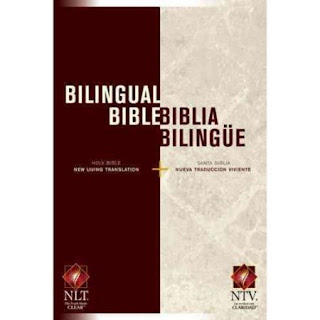Ten years ago, in the early days of this blog, I spent some time writing about Harry Frankfurt's essay
On Bullshit.
In 2005 Harry Frankfurt, a Princeton philosopher, republished his 1986 essay entitled
On Bullshit
as a stand-alone book. Published by Princeton University Press the
little book became a media sensation and spent 26 weeks on the New York
Times bestseller list.
Putting policy issues aside, I've grown increasingly alarmed by President Trump and his administration's apathy toward the truth. Non-existent massacres in Bowling Green, one of the greatest electoral wins in history when, in fact,
it was one of the worst, false claims about crime and the economy, calling factual reporting "fake news." On and on. This is an administration that traffics in bullshit.
You can keep track of it all here.
This bullshit prone administration is perfectly suited to a post-truth, fake news culture. We no longer care about the truth, and in that milieu bullshit thrives.
Here's how Frankfurt opens
On Bullshit, words that seem prescient in light of our current political climate:
One of the most salient features of our culture is that there is so much bullshit. Everyone knows this. Each of us contributes his share. But we tend to take the situation for granted. Most people are rather confident of their ability to recognize bullshit and to avoid being taken in by it. So the phenomenon has not aroused much deliberate concern, nor attracted much sustained inquiry.
In consequence, we have no clear understanding of what bullshit is, why there is so much of it, or what functions it serves. And we lack a conscientiously developed appreciation of what it means to us. In other words, we have no theory... (p. 1)
So, what do we mean by bullshit? And why is there so much of it?
The main analytic tool Frankfurt uses is the comparison of lying with bullshit. The two concepts seem related and yet distinct. We instinctively feel that both lying and bullshitting have some relation/application to truth or, more precisely, the lack of truth. That is, when we call a speech act a "lie" or "bullshit" we are stating that we are unsatisfied with what we have just heard. Specifically, we don't think we have been spoken to truthfully.
But it is more complex than that. Lying and bullshitting seem distinct as well. We know that when someone is bullshitting us they might not be, technically, lying. Further, when someone tells us a boldface lie our response isn't to say "That's bullshit!" but "You're a liar!" Finally, Frankfurt notes that, sociologically, we treat bullshit and lying differently. We are intolerant of lies but we appear to tolerate a huge amount of bullshit in our lives and public discourse. Why the difference?
In sum, lying and bullshit seem both related and distinct and Frankfurt sets about clarifying the relationship.
Summarizing greatly, Frankfurt's analysis is this. Lies and liars are very
concerned with truth insofar as they are trying to
hide the truth from us. In fact, a necessary condition of a lie is a knowledge of "how things stand" in relation to the truth.
But bullshit, according to Frankfurt, is a speech act that is
indifferent to truth. A bullshitter asks us to treat their speech as a legitimate transmission of information, but in reality the bullshitter neither knows of what they speak nor is concerned to "get things right." Quoting Frankfurt:
It is impossible for someone to lie unless he thinks he knows the truth. Producing bullshit requires no such conviction. A person who lies is thereby responding to the truth, and he is to that extent respectful of it. When an honest man speaks, he says only what he believes to be true; and for the liar, it is correspondingly indispensable that he considers his statements to be false. For the bullshitter, however, all these bets are off: he is neither on the side of the true nor on the side of the false. His eye is not on the facts at all, as the eyes of the honest man and of the liar are, except insofar as they may pertain to his interest in getting away with what he says. He does not care whether the things he says describe reality correctly. He just picks them out, or makes them up, to suit his purpose. (pp. 55-56)
I do think Trump tells outright lies, but I think a lot of what Trump says is best classified as bullshit. For example, I don't think Trump knew about or cared about the historical place of his electoral college win. He was indifferent to that truth. Trump wasn't lying but
bullshitting about his electoral college win.
In Frankfurt's words, Trump's interest when he boasts, brags and blusters is in "getting away with what he says." Trump "does not care whether the things he says describe reality correctly. He just picks them out, or makes them up, to suit his purpose."
This indifference-to-truth is so pernicious Frankfurt makes the following claim:
[The bullshitter] does not reject the authority of the truth, as the liar does, and oppose himself to it. He pays no attention to it at all. By virtue of this, bullshit is a greater enemy of the truth than lies are. (p. 61)
I agree. The bullshitter is the greatest enemy of the truth.
And yet, it's hard to put all the blame on Trump. Trump's bullshit thrives because we, collectively, have become indifferent to the truth. Fake news thrives because there's a market for it, willing consumers of bullshit. We
believe any claim that suits our purposes. And when we're confronted by inconvenient facts we treat them suspiciously and dismiss them as fake.
Truth has become politicized. We'll say and believe whatever helps us win.






















